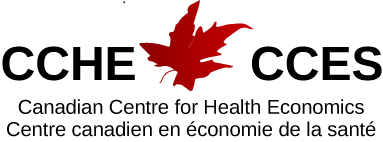
CCHE Seminar: Michael Wolfson, University of Ottawa
Contingent Inequalities: An Exploration of Health Inequalities in the U.S. and Canada
 Dr. Michael C. Wolfson received his B.Sc with honours from University of Toronto jointly in mathematics, computer science and economics, and his Ph.D. from Cambridge in Economics in 1977. He retired as Assistant Chief Statistician, Analysis and Development, at Statistics Canada in 2009. He was awarded a Canada Research Chair in Population Health Modelling/Populomics in the Faculty of Medicine at the University of Ottawa in 2010. Prior to joining Statistics Canada, he held increasingly senior positions in the Treasury Board Secretariat, the Department of Finance, the Privy Council Office, the House of Commons, and the Deputy Prime Minister’s Office. While a senior public servant, he was also a founding Fellow of the Canadian Institute for Advanced Research Program in Population Health (1988-2003).
Dr. Michael C. Wolfson received his B.Sc with honours from University of Toronto jointly in mathematics, computer science and economics, and his Ph.D. from Cambridge in Economics in 1977. He retired as Assistant Chief Statistician, Analysis and Development, at Statistics Canada in 2009. He was awarded a Canada Research Chair in Population Health Modelling/Populomics in the Faculty of Medicine at the University of Ottawa in 2010. Prior to joining Statistics Canada, he held increasingly senior positions in the Treasury Board Secretariat, the Department of Finance, the Privy Council Office, the House of Commons, and the Deputy Prime Minister’s Office. While a senior public servant, he was also a founding Fellow of the Canadian Institute for Advanced Research Program in Population Health (1988-2003).
Abstract
There has been considerable debate in the social epidemiology literature as to whether there is an empirical association between income inequality and population health for population groups at various levels of observation (e.g. from counties to countries). An intriguing observation is that at the metropolitan level, there is a strong correlation in the US, but none at all in Canada, hence a “contingent correlation”. On the other hand, there is far less debate about the association at the individual level between socio-economic status (SES) and health; the individual-level SES gradient is ubiquitously observed as an empirical association, and widely accepted as a causal relationship.
In this analysis, we assess alternative theories that could account for the observed contingent correlation between income inequality and measures of population health focusing on Canada and the US. To this end, we construct an abstract agent-based model (ABM), and explore various possible explanations including whether some mix of neighbourhood income segregation and parent-child transmission of social (dis)advantage can account for the observed patterns where higher income inequality is associated with poorer health. The THIM (Theoretical Health Inequality Model) ABM incorporates plausible empirically-based but stylized relationships among health status, education, income, mortality rates and neighbourhood sorting / segregation. THIM generates, among its many outputs, both life expectancies and health-adjusted life expectancies.
Alternative hypotheses are explored via a series of in silico experiments with the model. THIM is able to reproduce the “contingent correlation” between population health and income inequality observed in Canada and the US. But perhaps surprisingly, the simulation analysis suggests that higher neighbourhood income segregation alone is insufficient to generate the observed patterns. Other factors like the structures of urban government appear more important.
CCHE Seminar Series 2016/17 – full schedule
Join the CCHE Health Economics seminar series mailing list by sending a request to cche@utoronto.ca.
 |
 |
Related Events

Sign up for IHPME Connect.
Keep up to date with IHPME’s News & Research, Events & Program, Recognition, e-newsletter.
Subscribe to Connect Newsletter
Get in Contact
Communications
Marielle Boutin
Email Address: ihpme.communications@utoronto.ca
